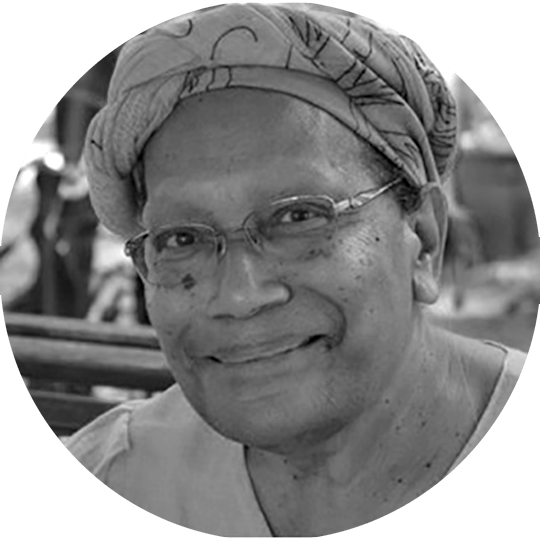Poet, teacher, feminist, politician and visionary, Déwé Gorodé was an advocate for the rights of indigenous people and the status of women across the region and a beacon of Oceanic literature.
She was one of the first Kanak women to study at university, gaining a degree in literature from Montpellier and setting her on a path of political action, to work for her people as a writer, and a teacher.
On her return to New Caledonia, she became an activist, involved with the group 1878 and then with the independence movement, PALIKA. During this period, she was writing poetry, stories and novels.
Déwé published her first book of poetry Sous les cendres des conques in 1985. Writing in French, English and her own language Païci, she was prolific throughout the 1990s, with collections of short stories – Utê Mûrûnûu (1994), L’Agenda (1996) and Le Vol de la Parole (2002) – and poetry collections, including Par les temps qui courent (1996), Pierre noire (1997) and Dire le vrai (1999). Later, she turned to novels such as L’épave (2005), Graines de pin colonnaire and Tâdo, tâdo, wéé!
Lauded across France and the Pacific as an indigenous and feminist writer, she always directed her work towards the new generation: “I don’t write for myself. I write for the children, for the generations to come. I continue to talk to the young, for the younger generation is our future.”
Déwé was elected to Congress in May 1999, one of the first women in the new legislature. Between April 2001 and June 2009, she was elected as Vice President; between 2004-07, President Thémereau and Vice-President Gorodé were the first two women elected to lead a government in the Pacific islands.
Affected by ill health in her later years, she continued as a Minister of Culture, Citizenship and Women, seeking the post-conflict reconciliation required to create a “common destiny” for New Caledonia. Her death in August 2022 ended a courageous life as an advocate for the rights of indigenous people and the status of women across the region.

